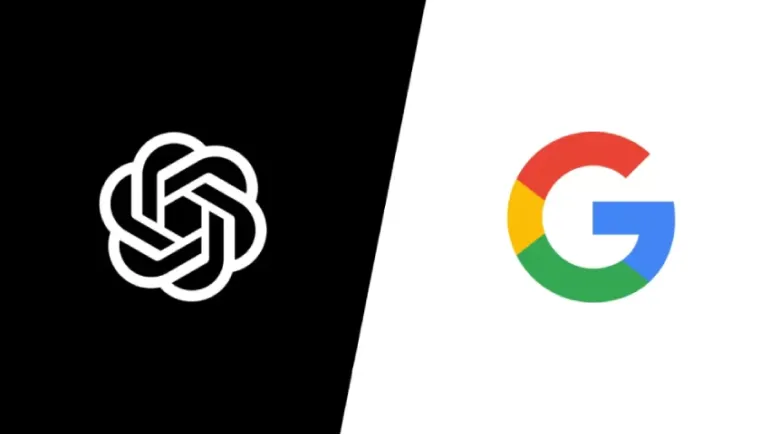In the rapidly evolving digital landscape, the ways we seek and retrieve information have seen remarkable transformations. Two giants leading the charge are ChatGPT, an advanced language model developed by OpenAI, and Google Search, the most widely-used search engine globally. Each has its strengths and unique approaches to helping users find the information they need, but how do they compare? This article will delve into the nuances of both, exploring their capabilities, limitations, and the contexts in which they excel.
Introduction: Understanding the Contenders
ChatGPT is an artificial intelligence chatbot powered by the GPT-4 architecture, capable of generating human-like text based on the input it receives. It’s designed to engage in conversation, provide detailed responses, and assist with a wide array of tasks, from answering questions to drafting emails.
Google Search, on the other hand, is an index-based search engine that scours the web to retrieve relevant information. It uses complex algorithms to rank and display search results, offering users a plethora of sources and perspectives.
Both tools are incredibly powerful, but they serve different purposes and operate in distinct ways. Understanding these differences is crucial for leveraging each tool effectively.
The Core Differences
Nature of Interaction
- ChatGPT: Interactions with ChatGPT are conversational. Users type in natural language queries, and the AI responds in a similarly conversational style. This interaction model is ideal for tasks that benefit from nuanced, context-aware dialogue.
- Google Search: Google Search is query-based. Users input keywords or phrases, and Google returns a list of relevant web pages. The interaction is more transactional and less conversational, focusing on directing users to external sources for information.
Information Source
- ChatGPT: The knowledge base of ChatGPT is derived from a vast dataset encompassing books, articles, websites, and other textual sources up until its last update. It doesn’t access real-time data or the web for its responses, relying instead on the data it was trained on.
- Google Search: Google indexes the entire internet, providing access to the most recent and varied information available. It ranks web pages based on relevance, authority, and freshness, ensuring users get up-to-date results.
Strengths and Use Cases
ChatGPT’s Strengths
- Contextual Understanding and Continuity: ChatGPT excels in maintaining context over multiple interactions, making it suitable for in-depth discussions, iterative problem-solving, and tasks requiring context retention.
- Creative Assistance: For tasks that require creativity, such as writing, brainstorming ideas, or generating content, ChatGPT offers valuable input.
- Personalized Interaction: ChatGPT adapts its responses based on the user’s previous inputs, providing a tailored experience.
Google Search’s Strengths
- Access to Real-Time Information: Google provides the most current information available, essential for news and trends.
- Diverse Sources: Aggregates information from a multitude of sources, enabling users to explore different viewpoints.
- Specialized Search Features: Tools like image search, maps, and news cater to specific user needs effectively.
Limitations
ChatGPT’s Limitations
- Knowledge Cutoff: ChatGPT’s knowledge is static, limited to information available up until its training cutoff date.
- Potential for Inaccuracies: Occasionally provides incorrect or misleading information.
- Lack of Source Transparency: Doesn’t cite sources, making it difficult to verify information.
Google Search’s Limitations
- Information Overload: Users often need to sift through numerous results to find relevant information.
- Relevance Ranking Issues: Algorithms may not always perfectly match user intent.
- Ads and Sponsored Content: Prioritizes paid results over organic ones, sometimes detracting from the user experience.
Practical Applications and Scenarios
When to Use ChatGPT
- Creative Writing and Content Generation: Ideal for drafting text, generating ideas, or writing full-length articles.
- Personal Assistance: Tasks like drafting emails, summarizing text, or planning schedules can be handled efficiently by ChatGPT.
- Education and Learning: Useful for explaining concepts or tutoring students in a conversational format.
When to Use Google Search
- Research and Fact-Checking: Perfect for academic research, verifying facts, or accessing current news.
- Exploring Multiple Perspectives: Aggregates information from various sources to provide a comprehensive view.
- Finding Specific Resources: Ideal for locating businesses, products, or services through specialized search tools.
Complementary Tools for the Modern User
In conclusion, ChatGPT and Google Search are not competitors but complementary tools, each excelling in different areas. ChatGPT shines in conversational interaction, creative assistance, and personalized responses, making it ideal for tasks that benefit from human-like dialogue and contextual understanding. Google Search, with its real-time data access, diverse sources, and specialized search features, is indispensable for research, fact-checking, and discovering new information.
For the modern user, knowing when to use ChatGPT versus Google Search can enhance productivity, creativity, and knowledge acquisition. By leveraging the strengths of both, users can navigate the vast digital landscape more effectively and efficiently.













Comments
There are no comments for this Article.